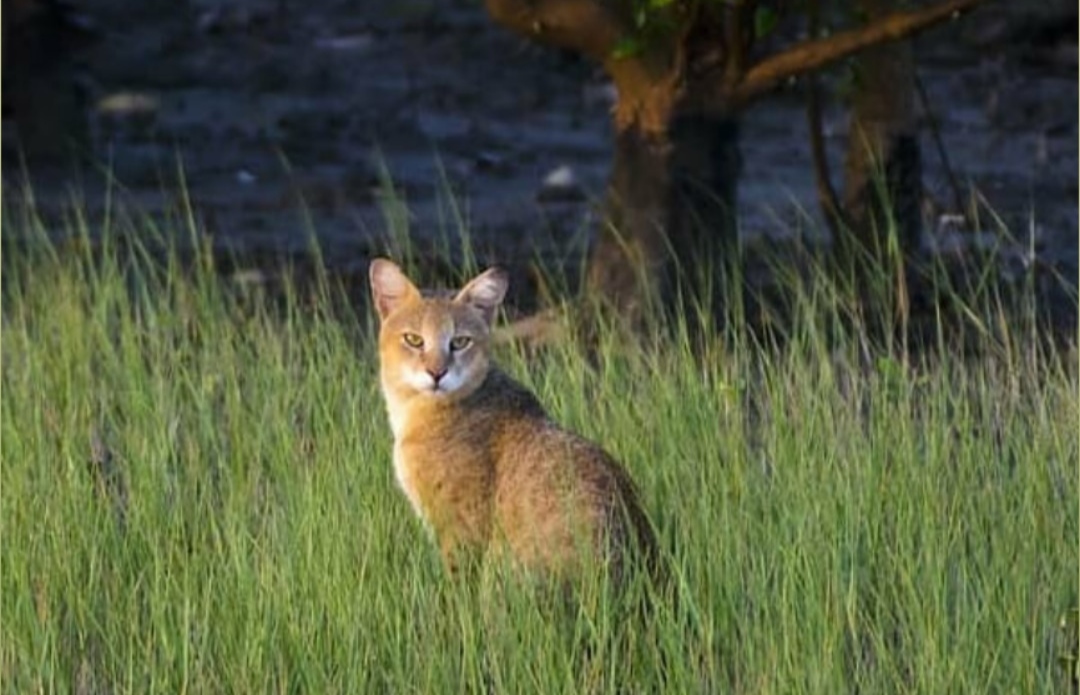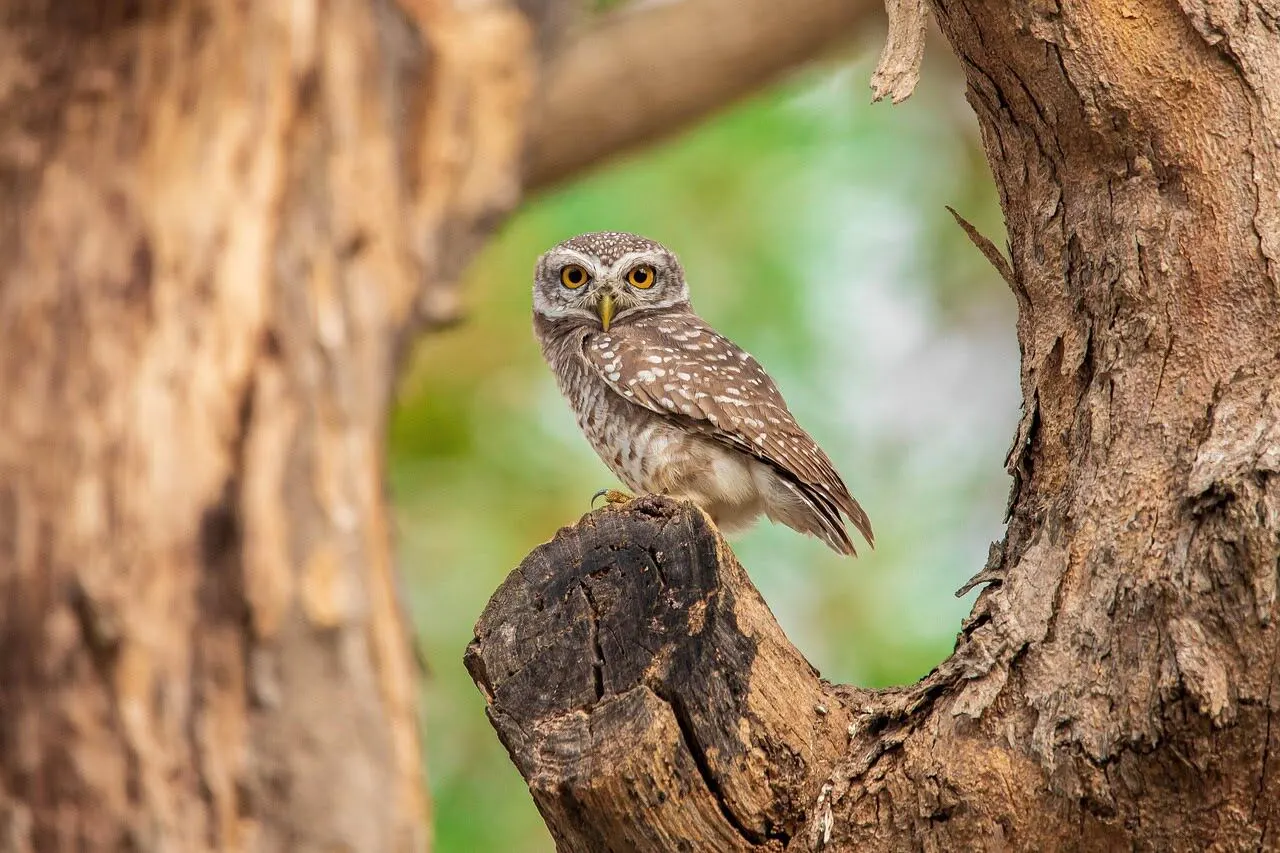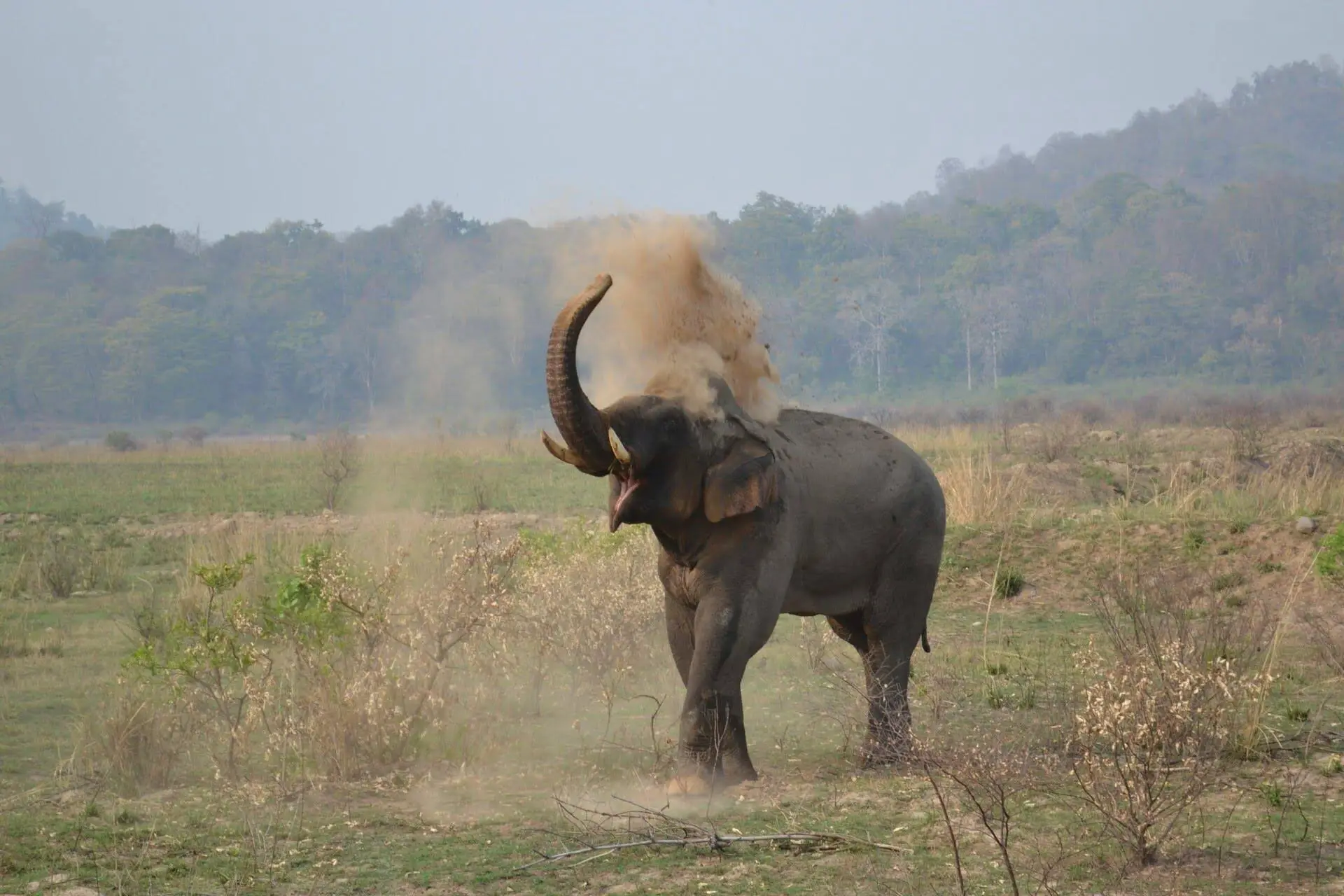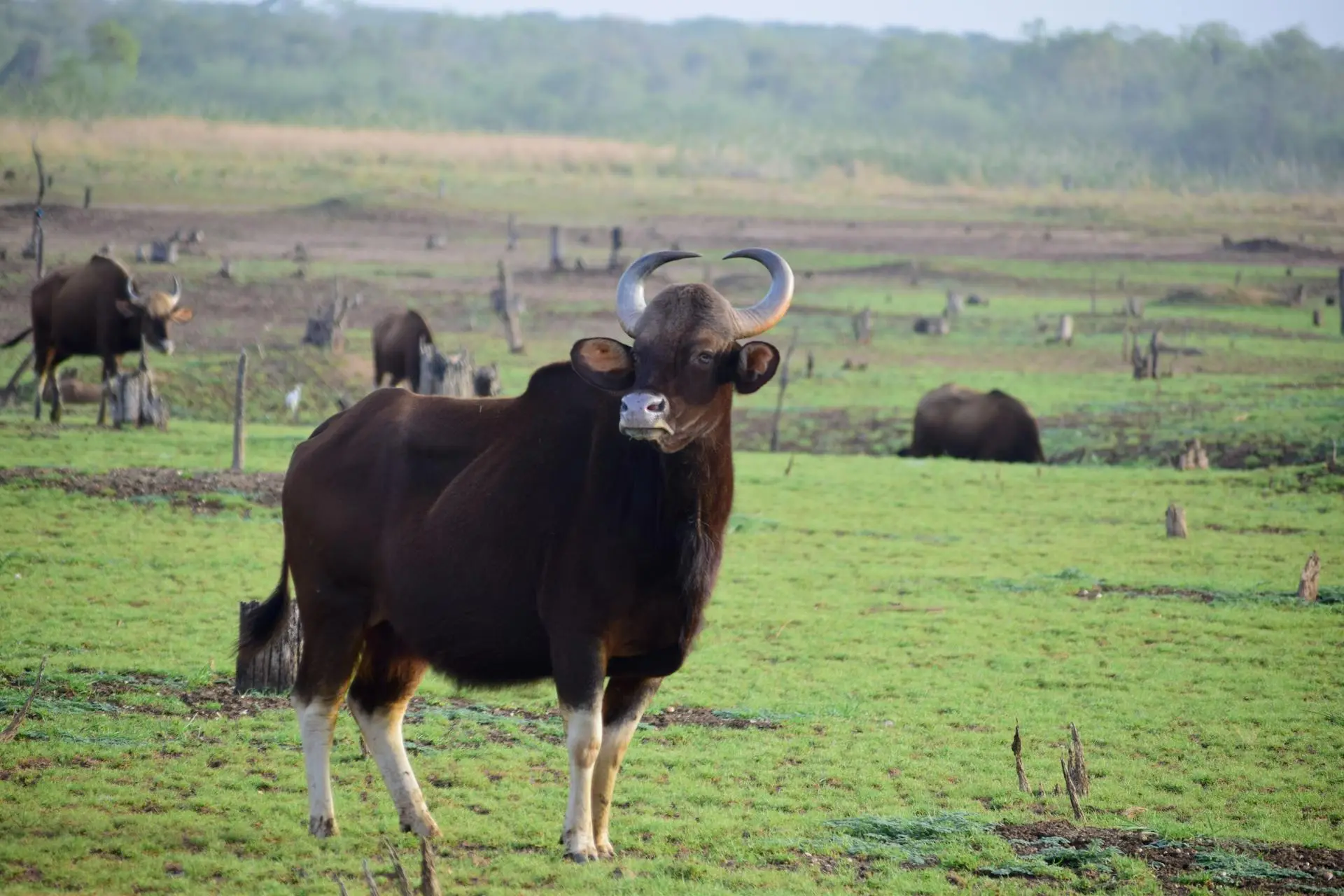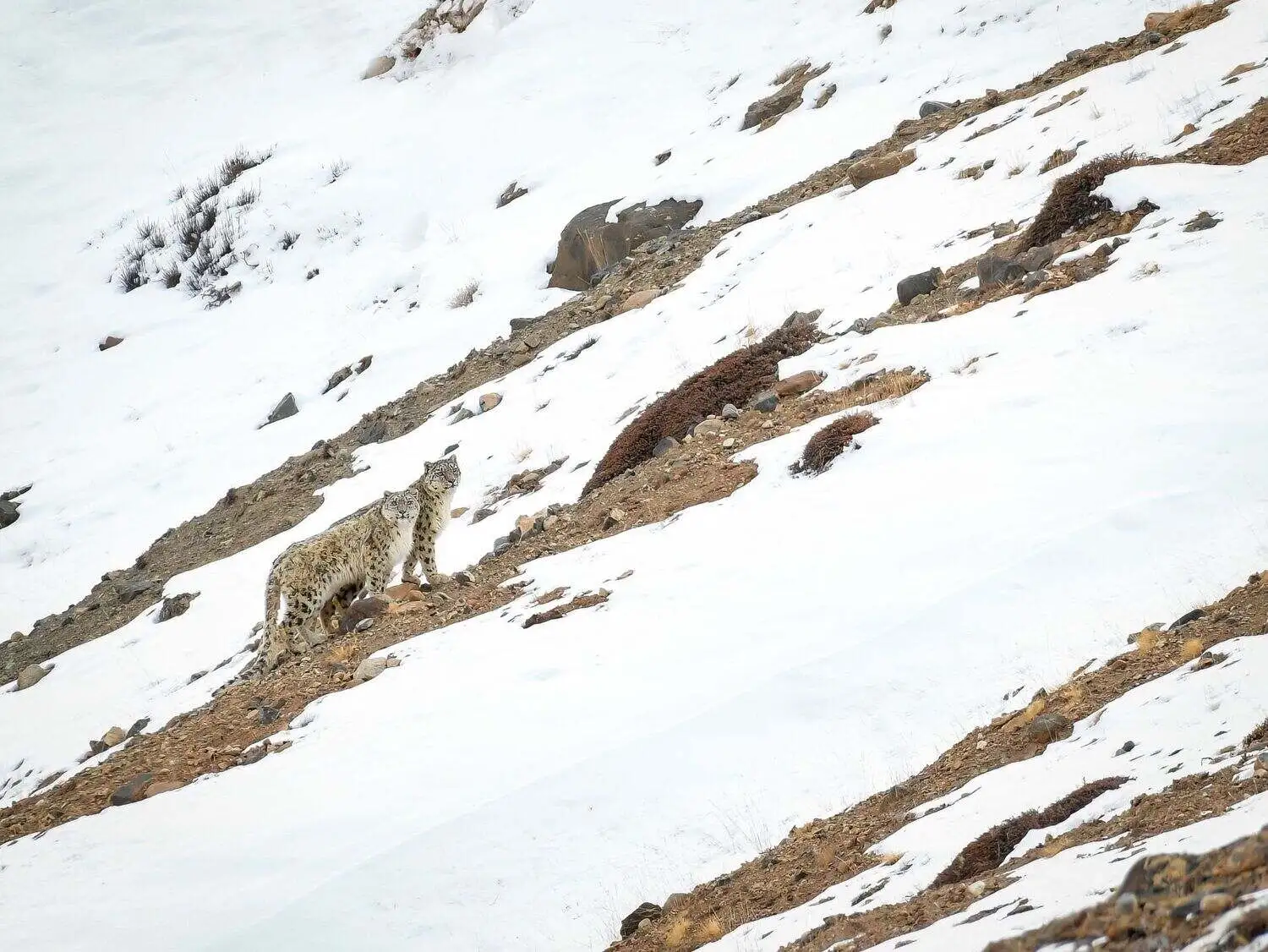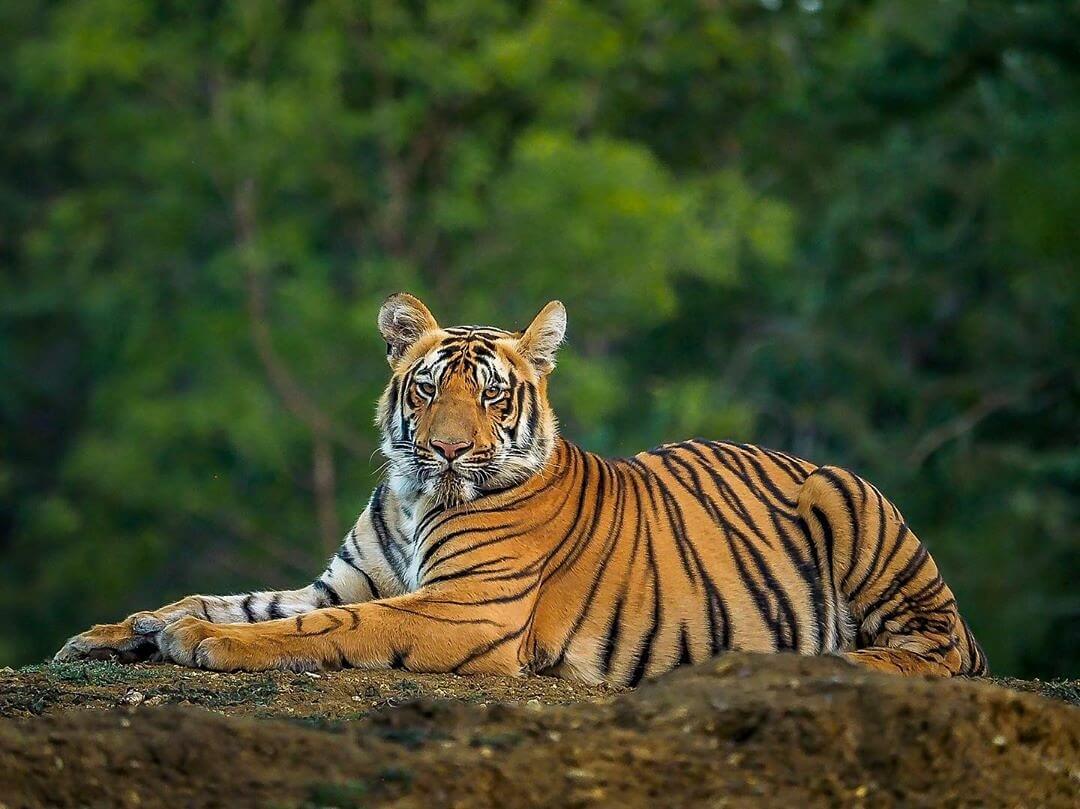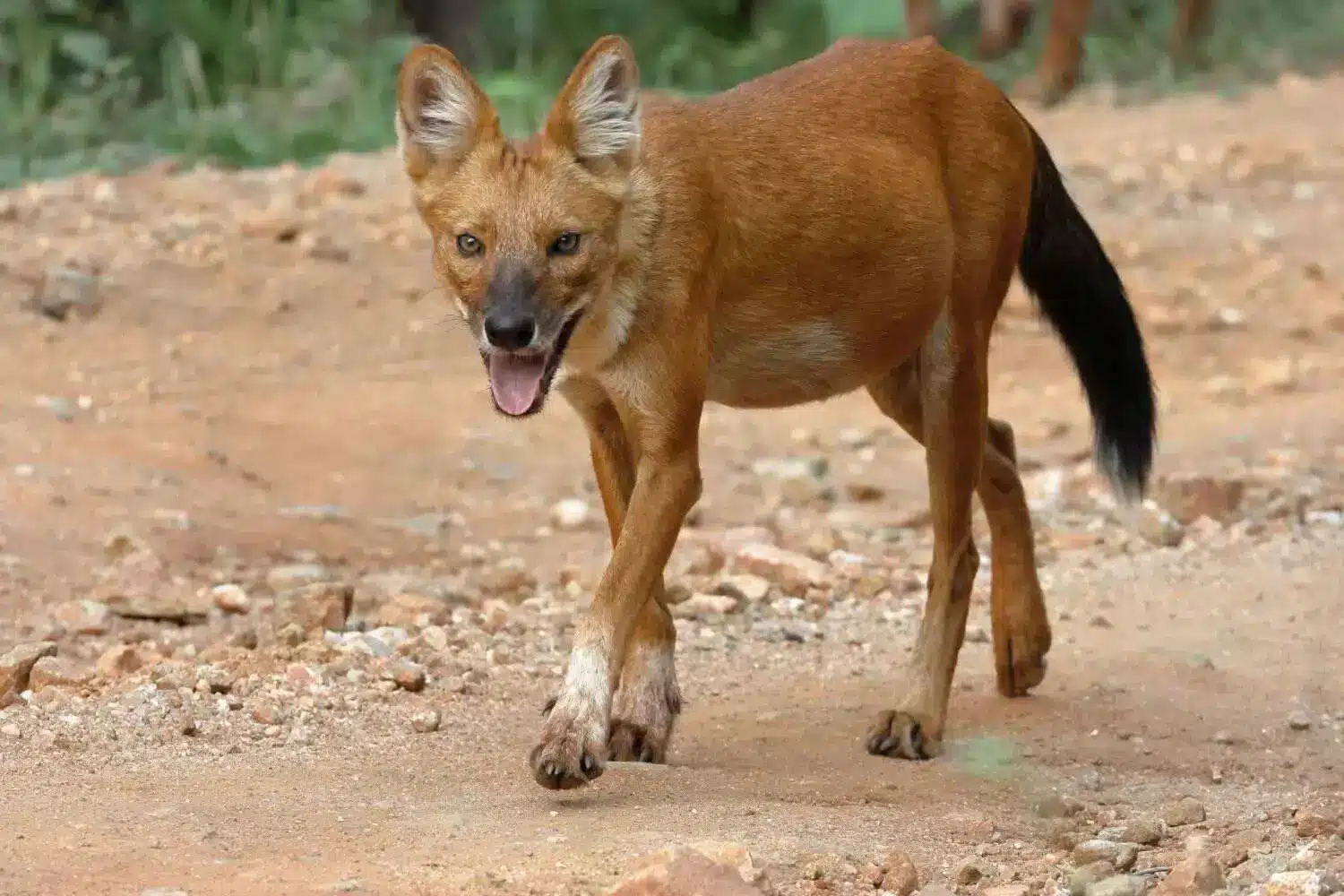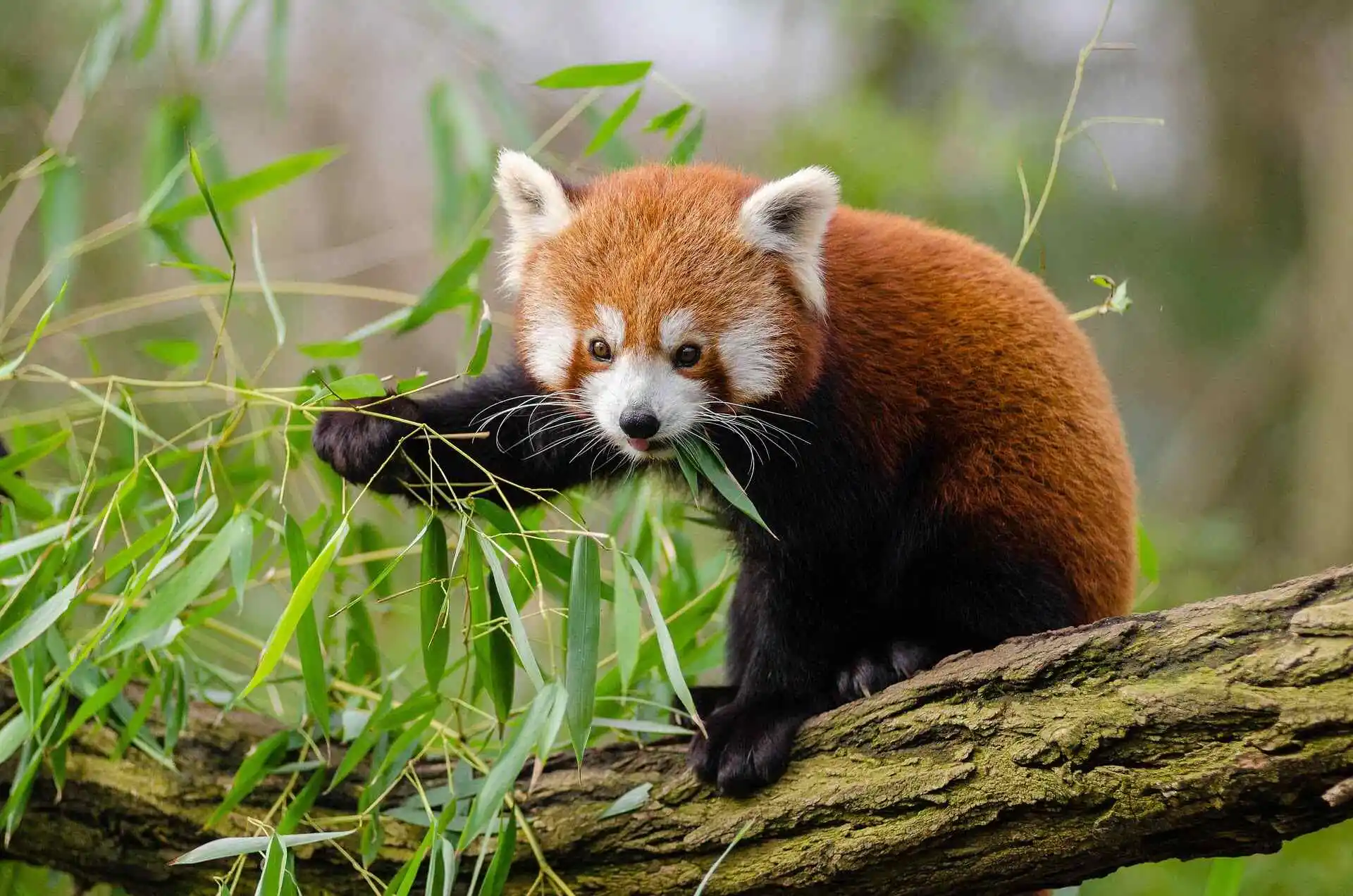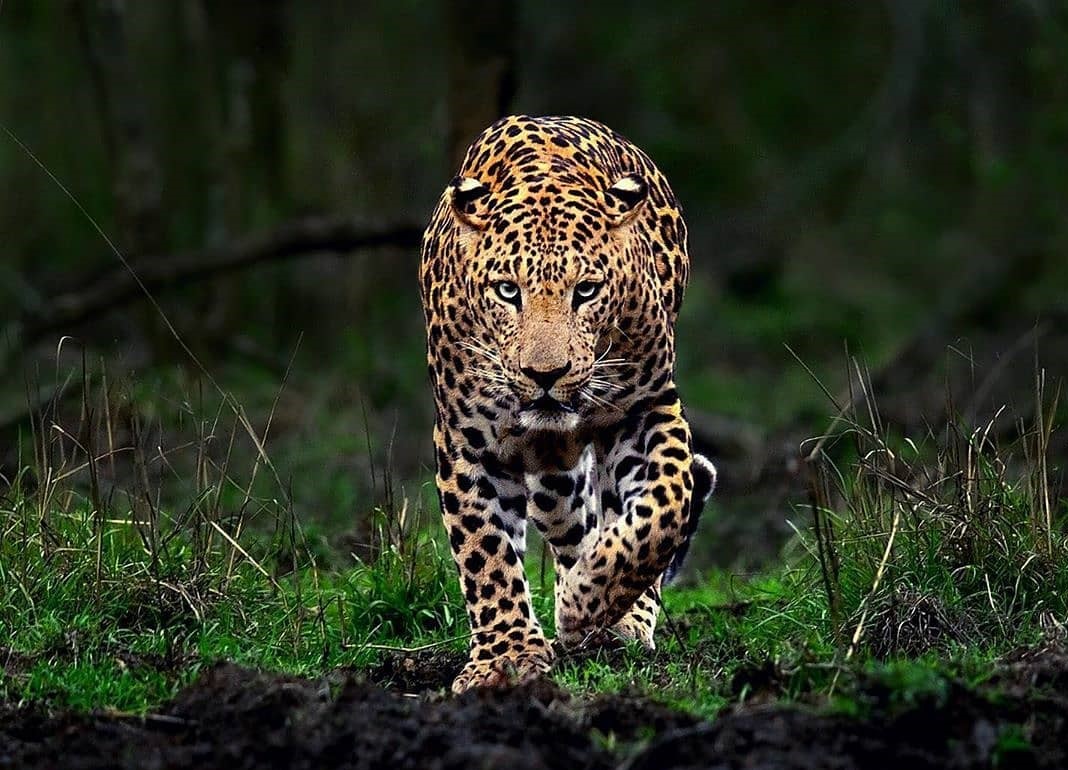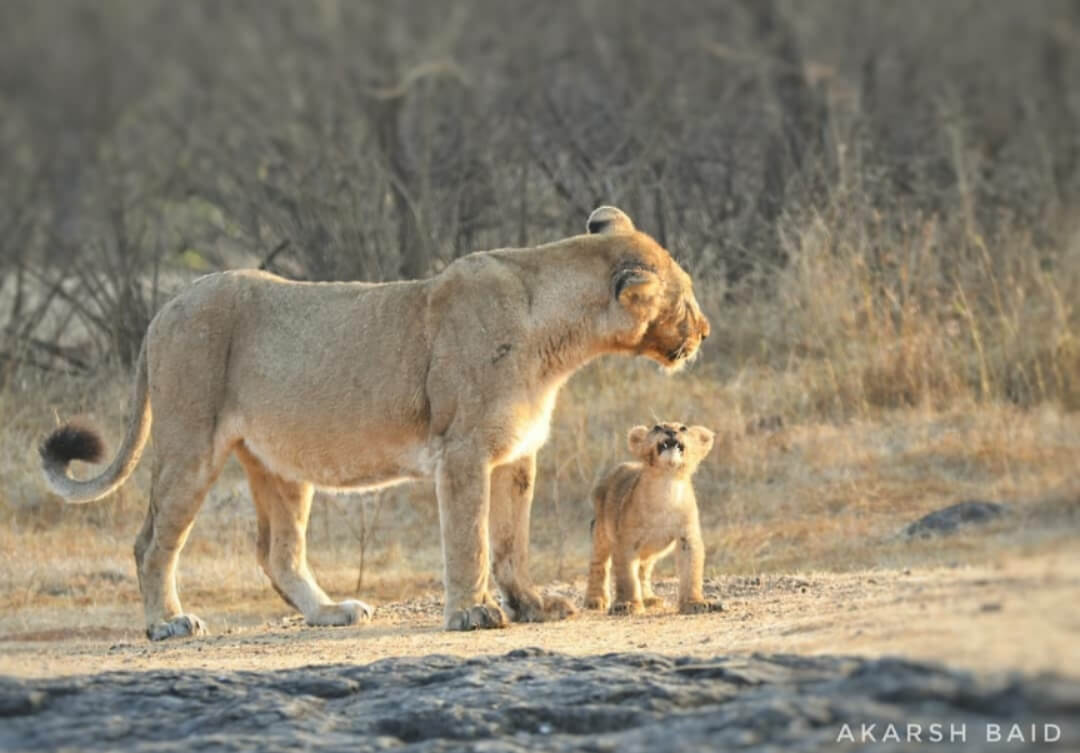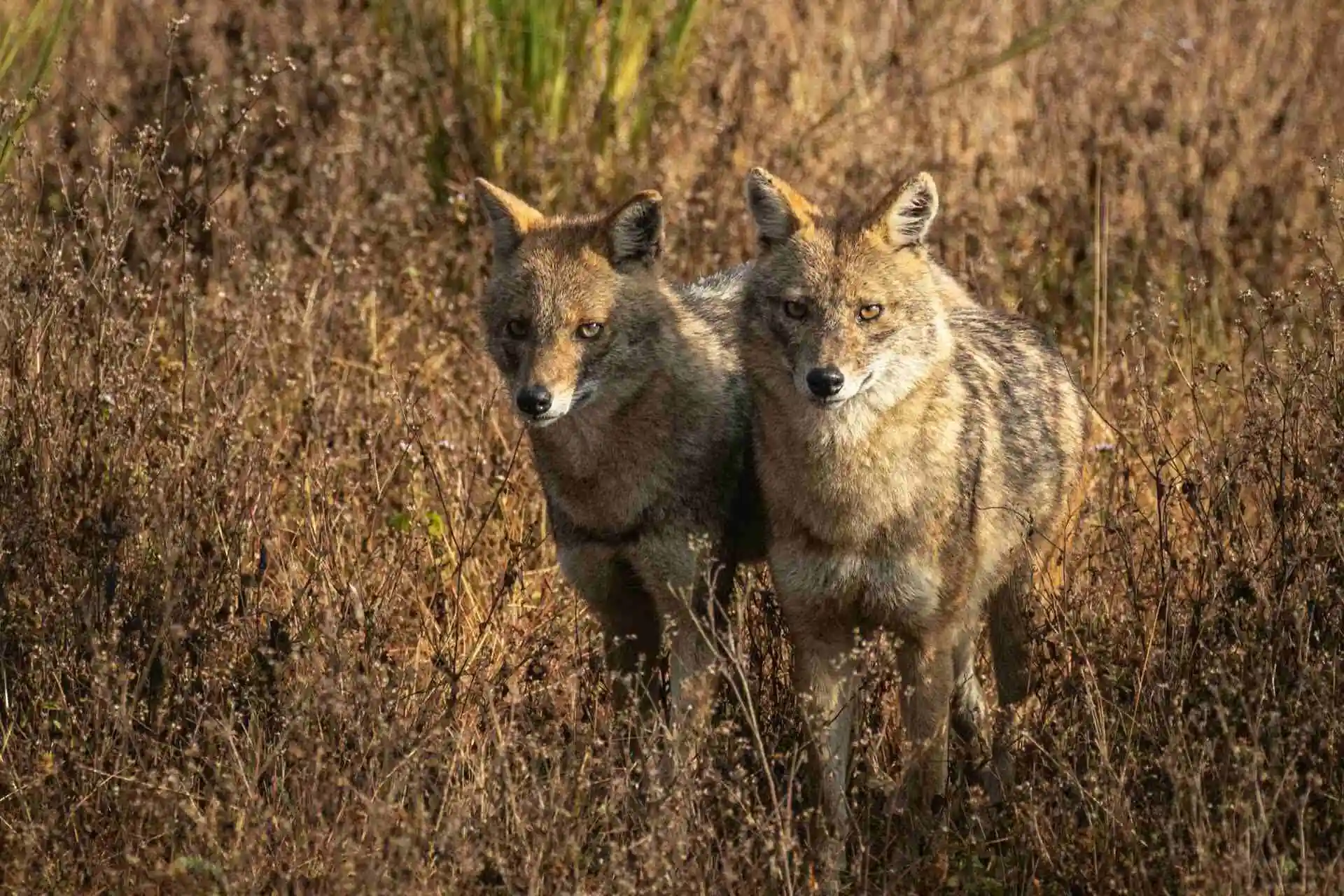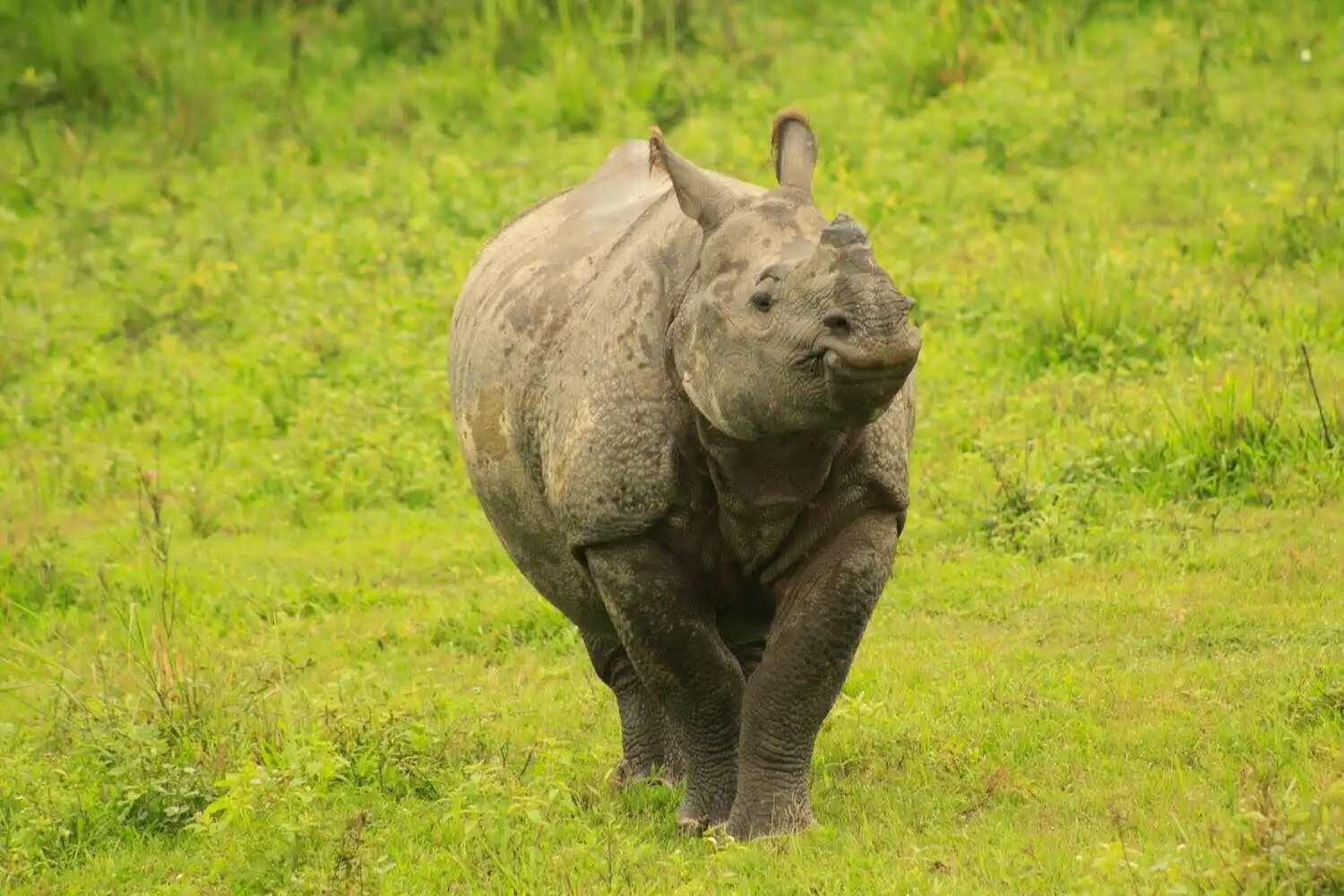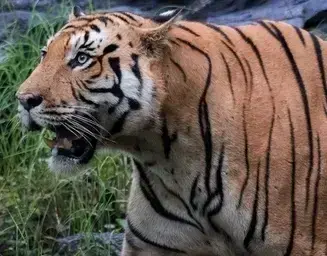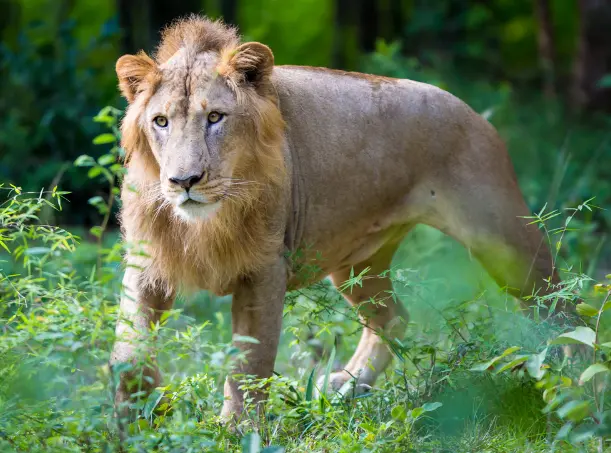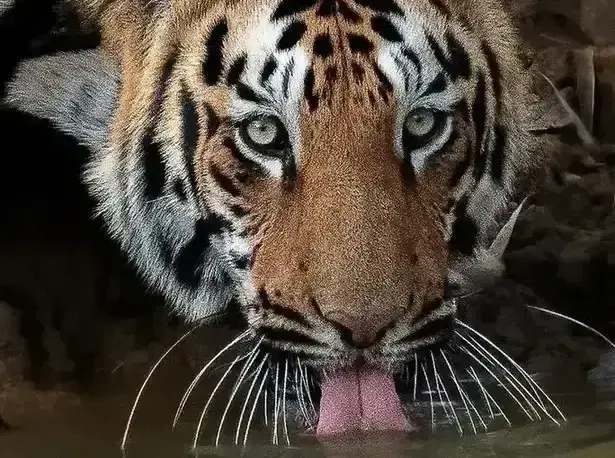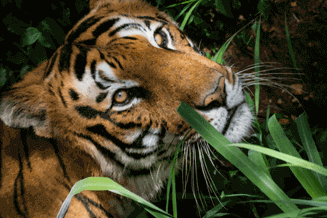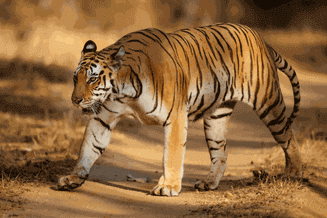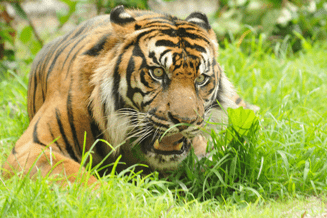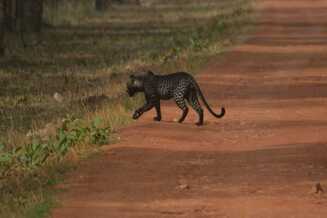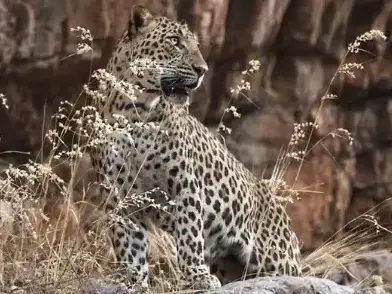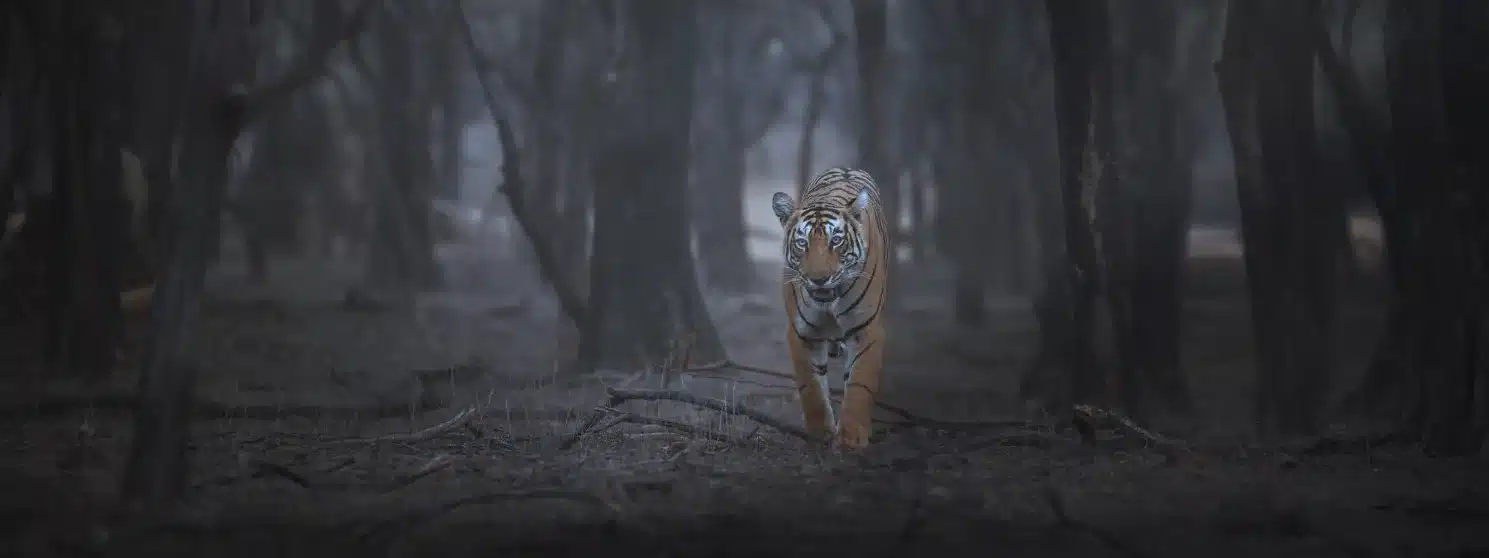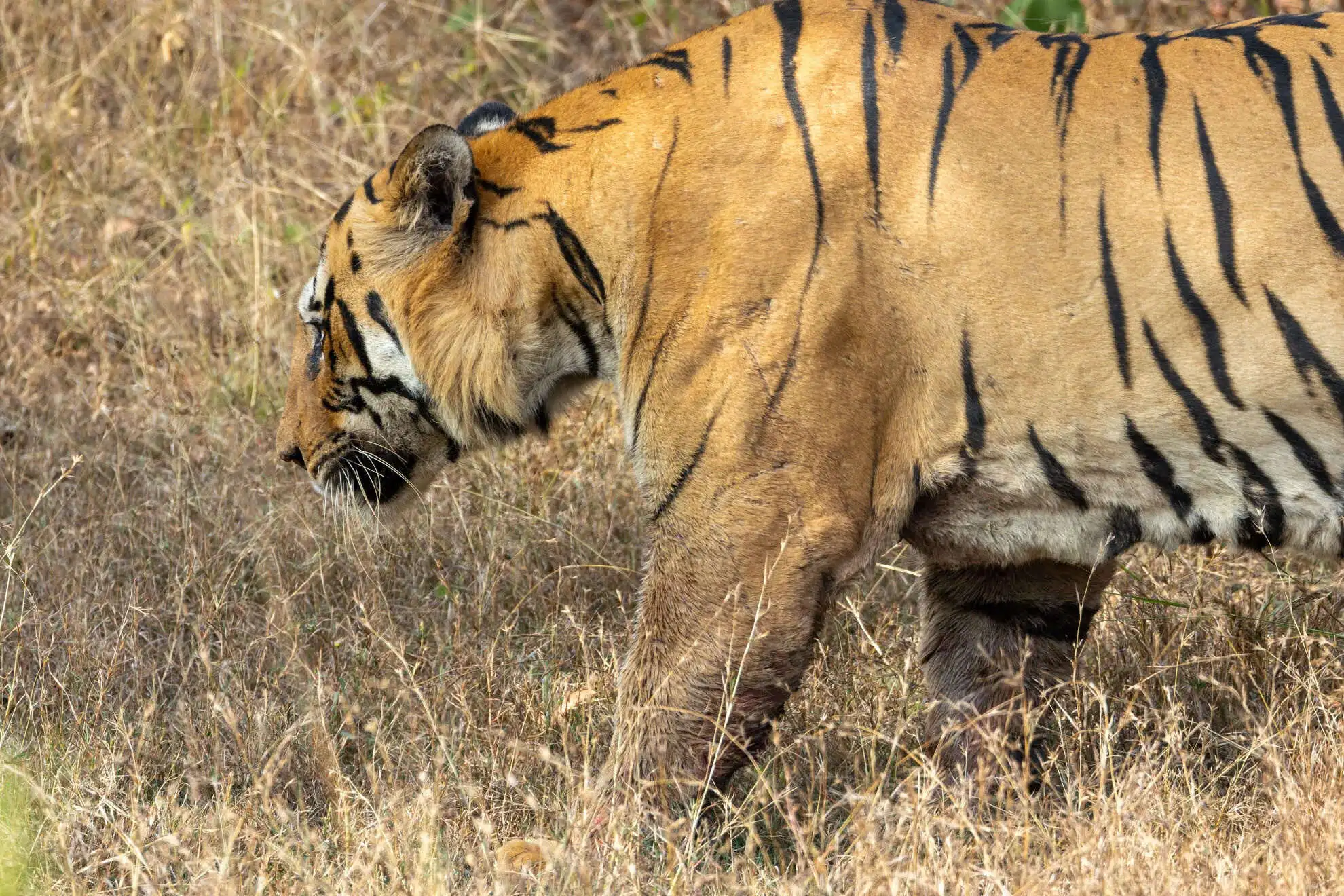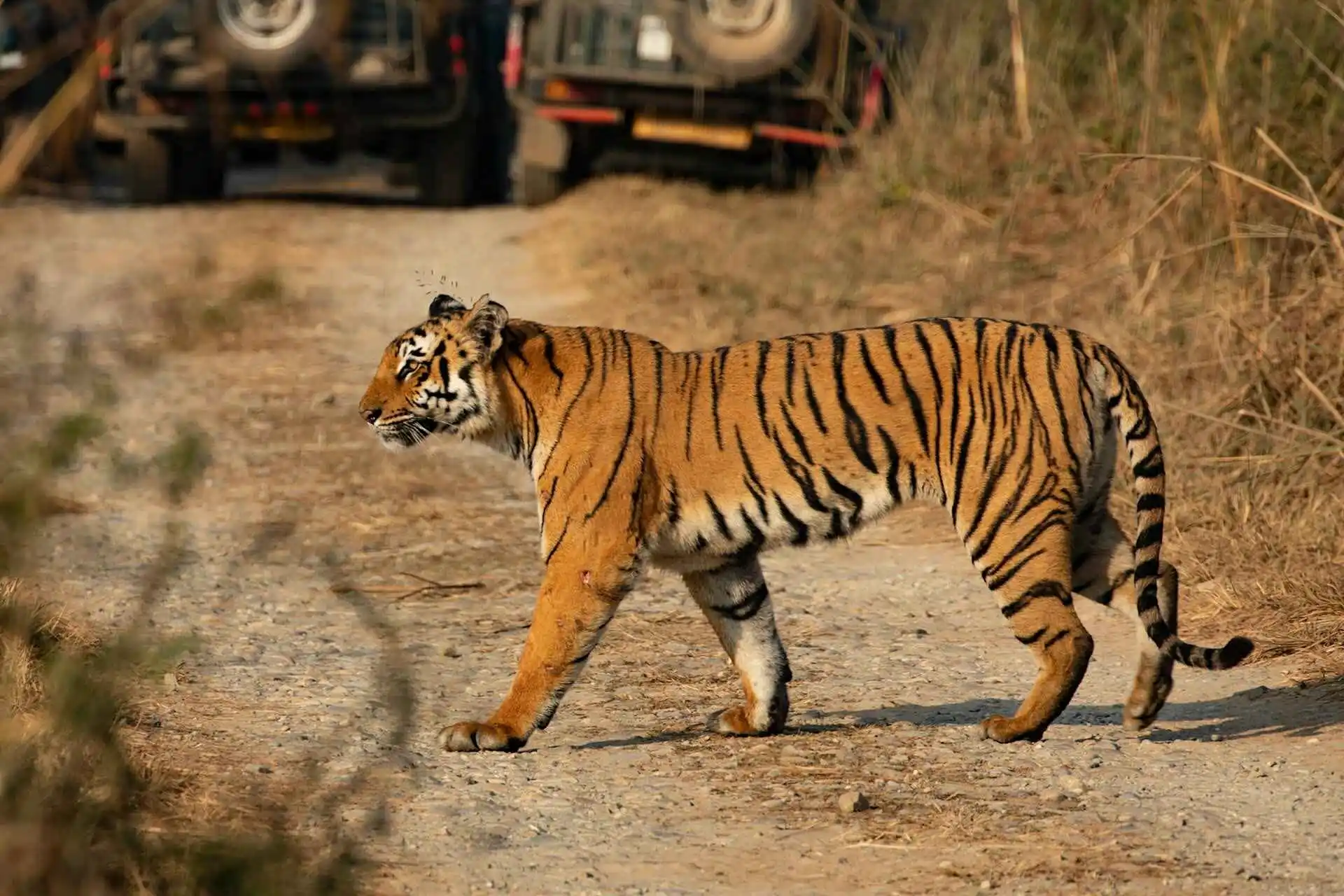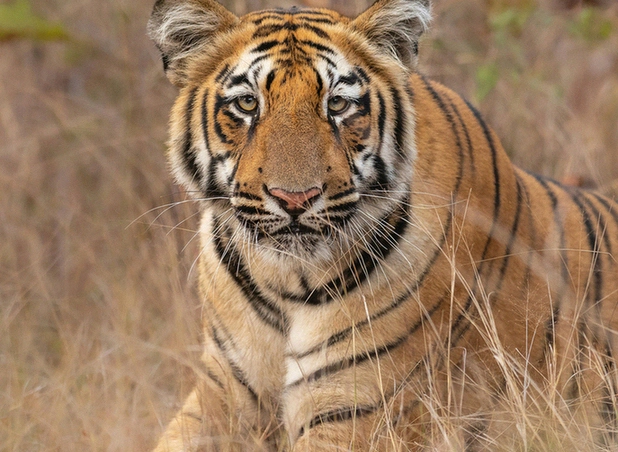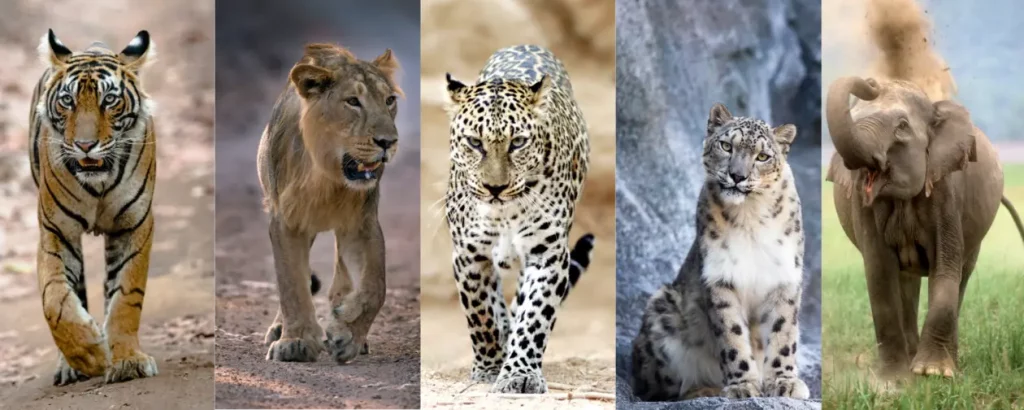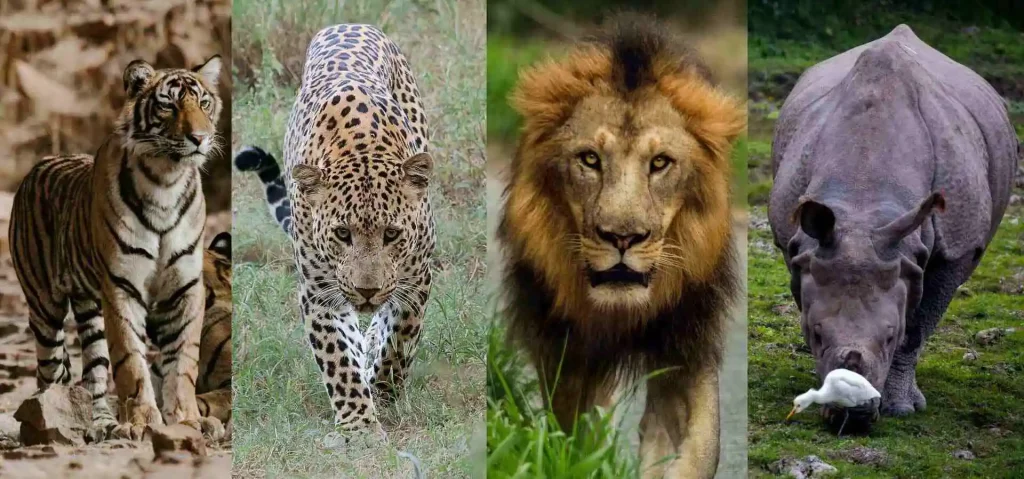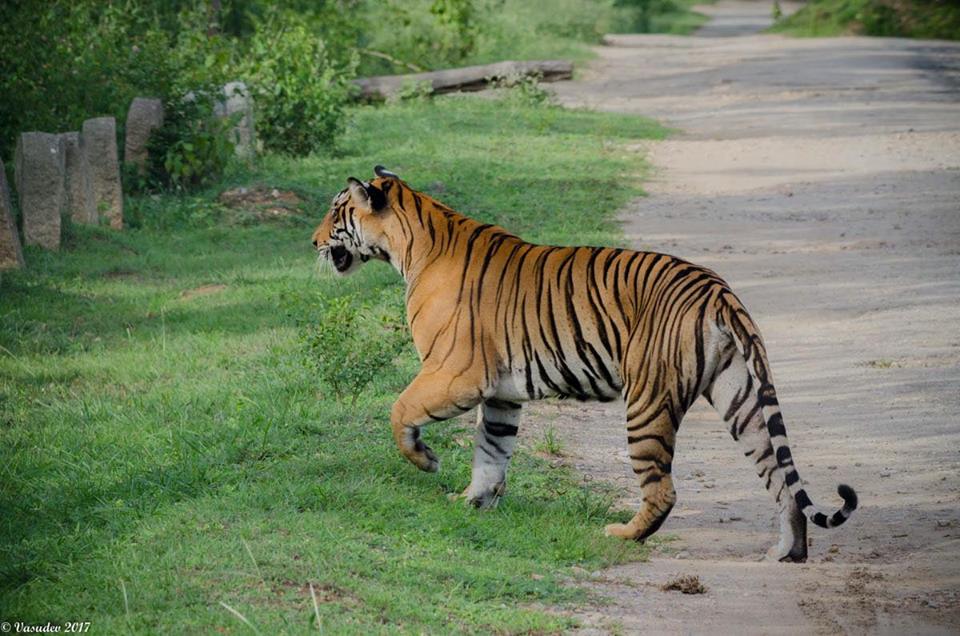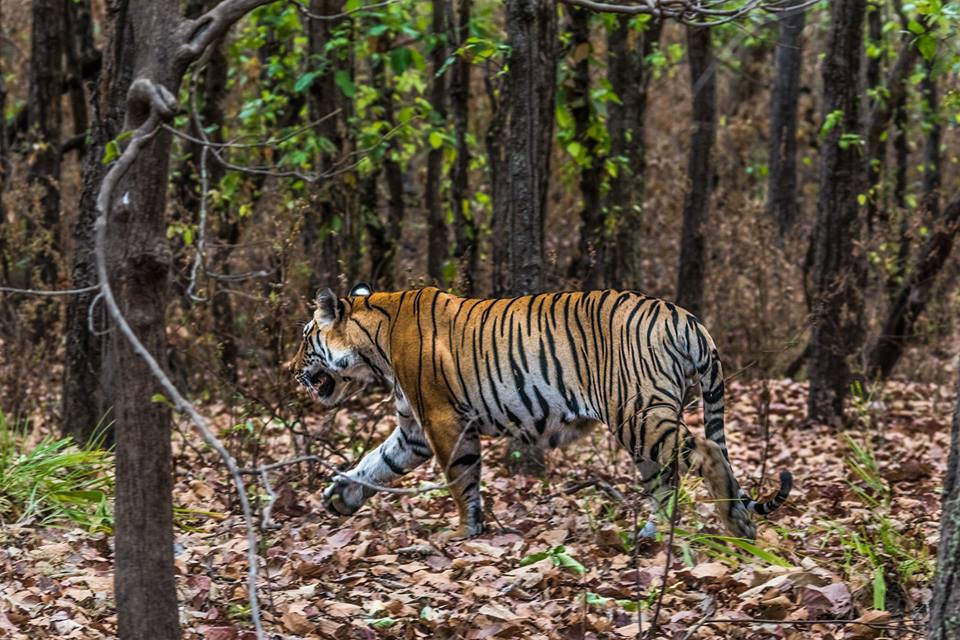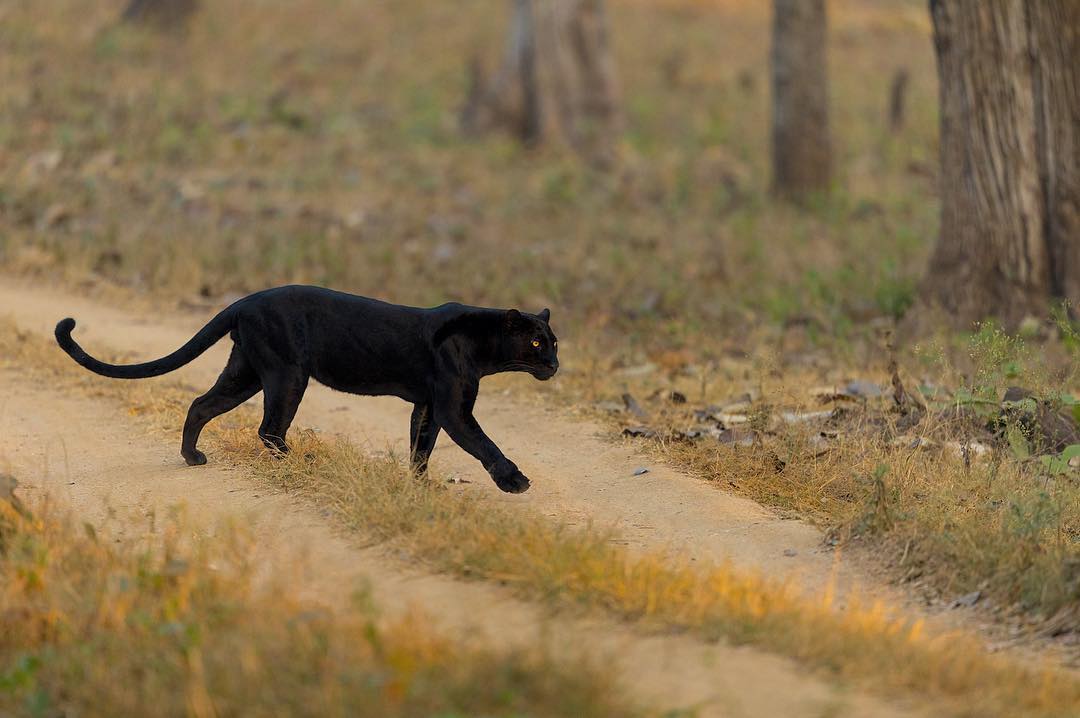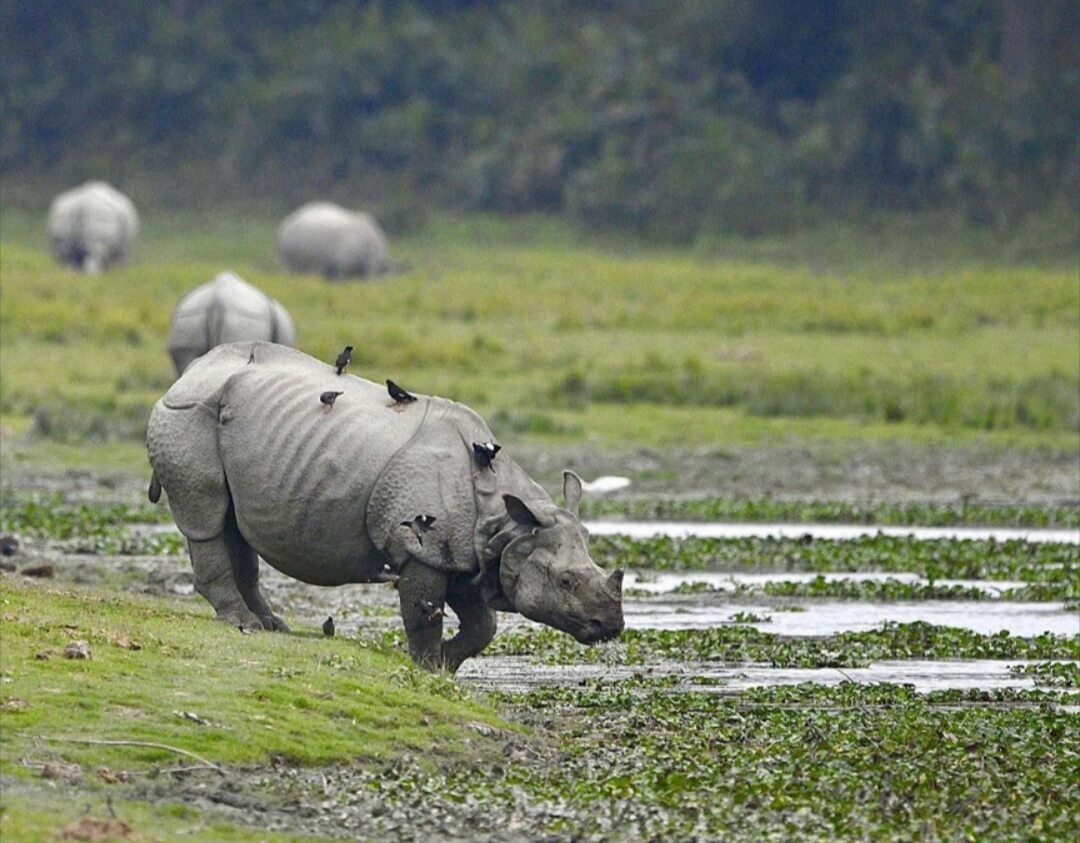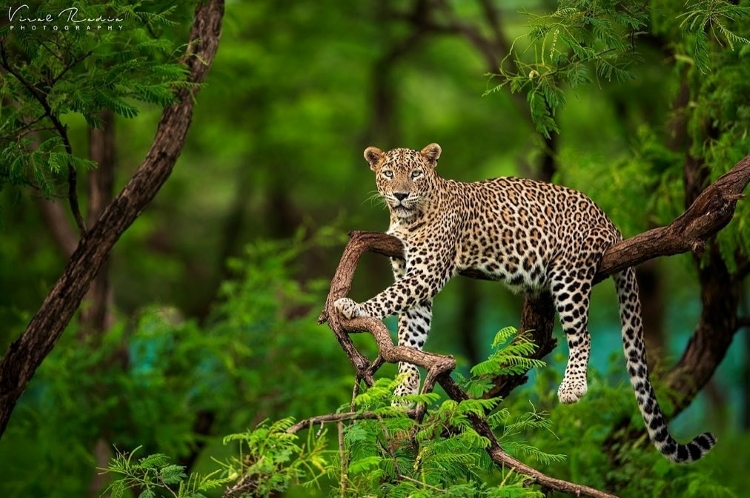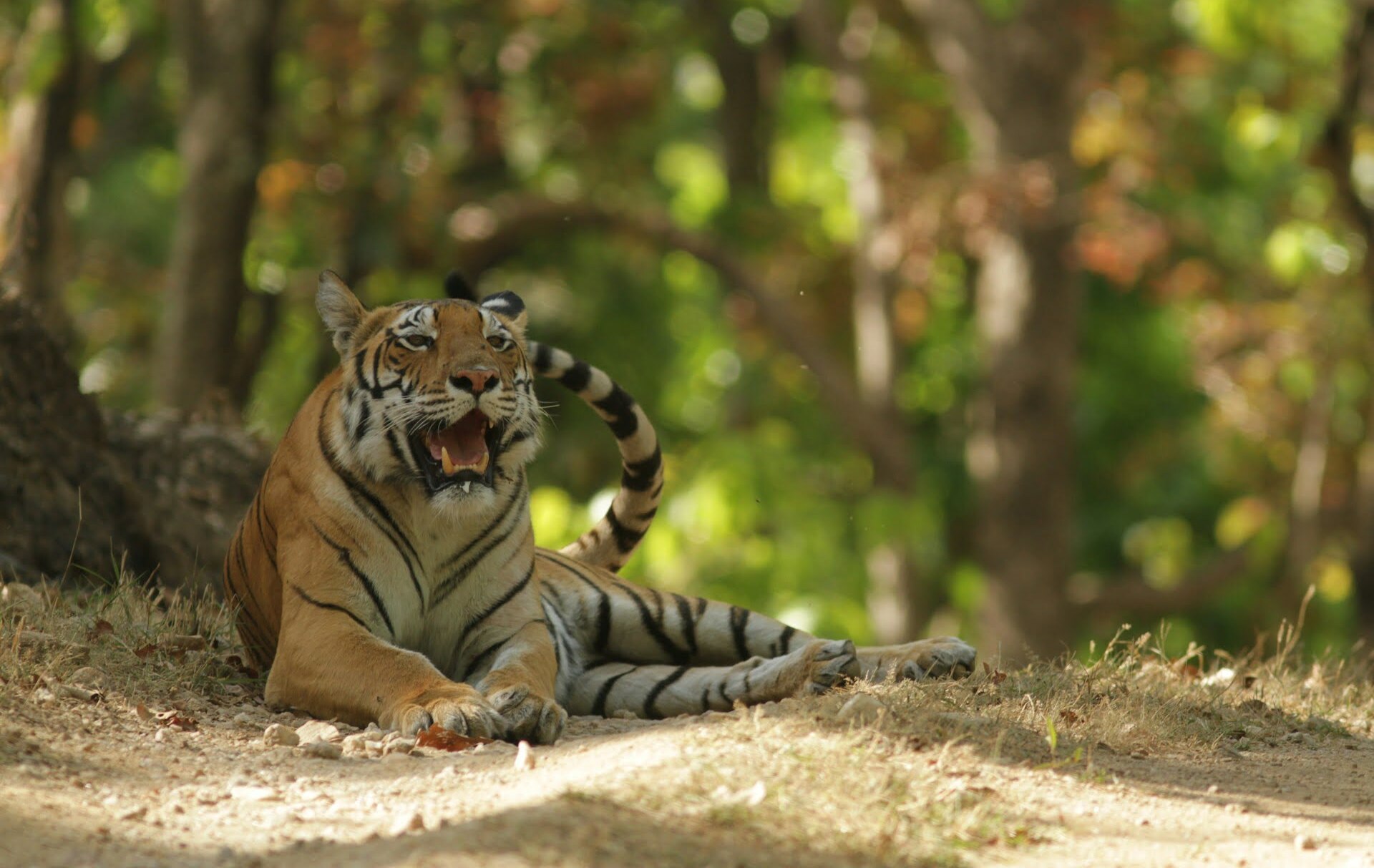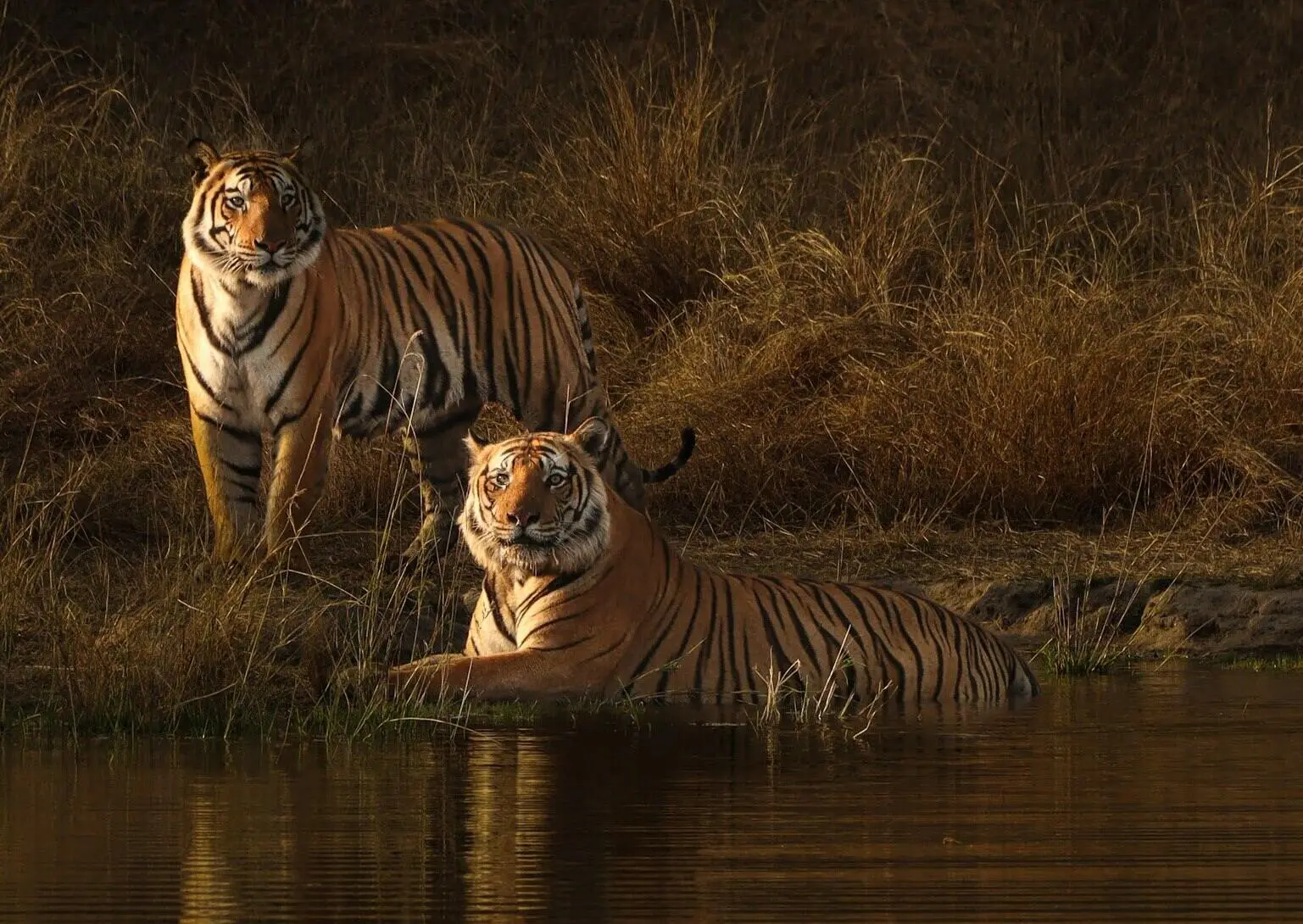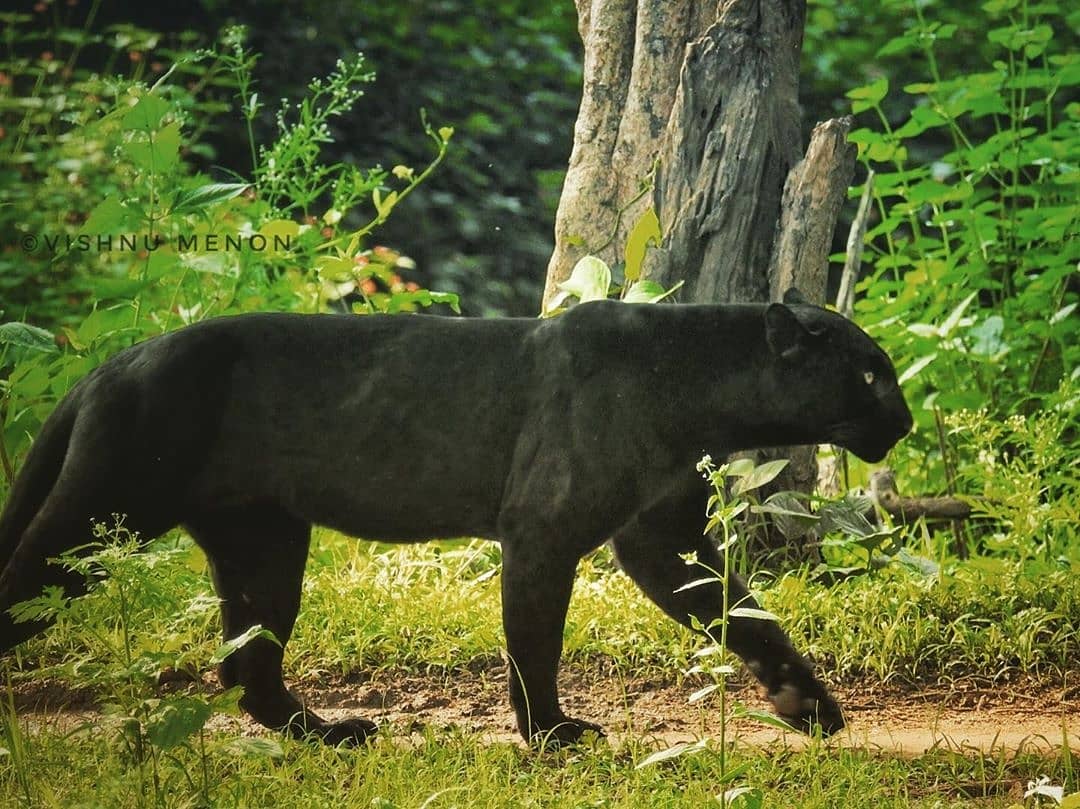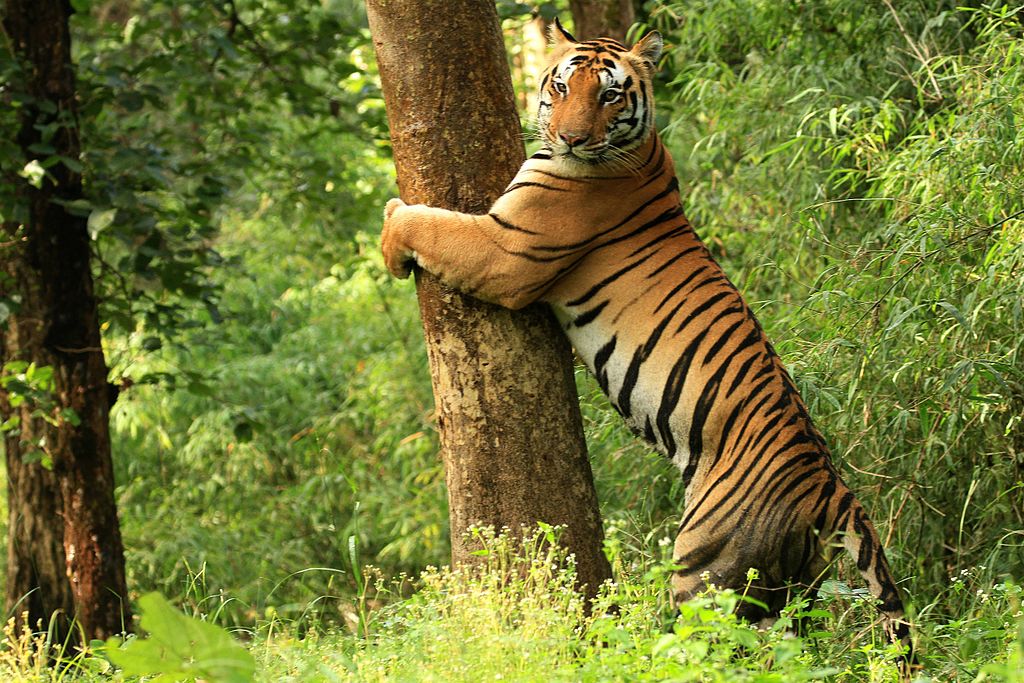Jungle cat belonging to the Felidae family and under the species of Felis Chaus. They are more commonly known as a swamp cat or reed cat is a category of small to medium-sized species of cat. Jungle cats are one of the most beautiful wild cats.
Although called jungle cats they are however not associated with jungles per se but to densely vegetated land cover which are surrounded by wetlands. These wild cats are native to the middle east, south and southeast Asia along with southern china.
Physical attributes
Jungle cats are medium-sized wild cats. They have a coat color that varies from sandy, greyish brown to tawny red with a slender body with underparts of cream and pale fur. Their legs are slender and long and occasionally retain faint horizontal strips from their younger age. Their head is narrow with a high domed forehead along with tall and rounded ears. The tails of jungle cats are relatively short encompassed with several black rings ending with a black tip.
Find Jungle Cat on Pench, Kanha & kaziranga Tour
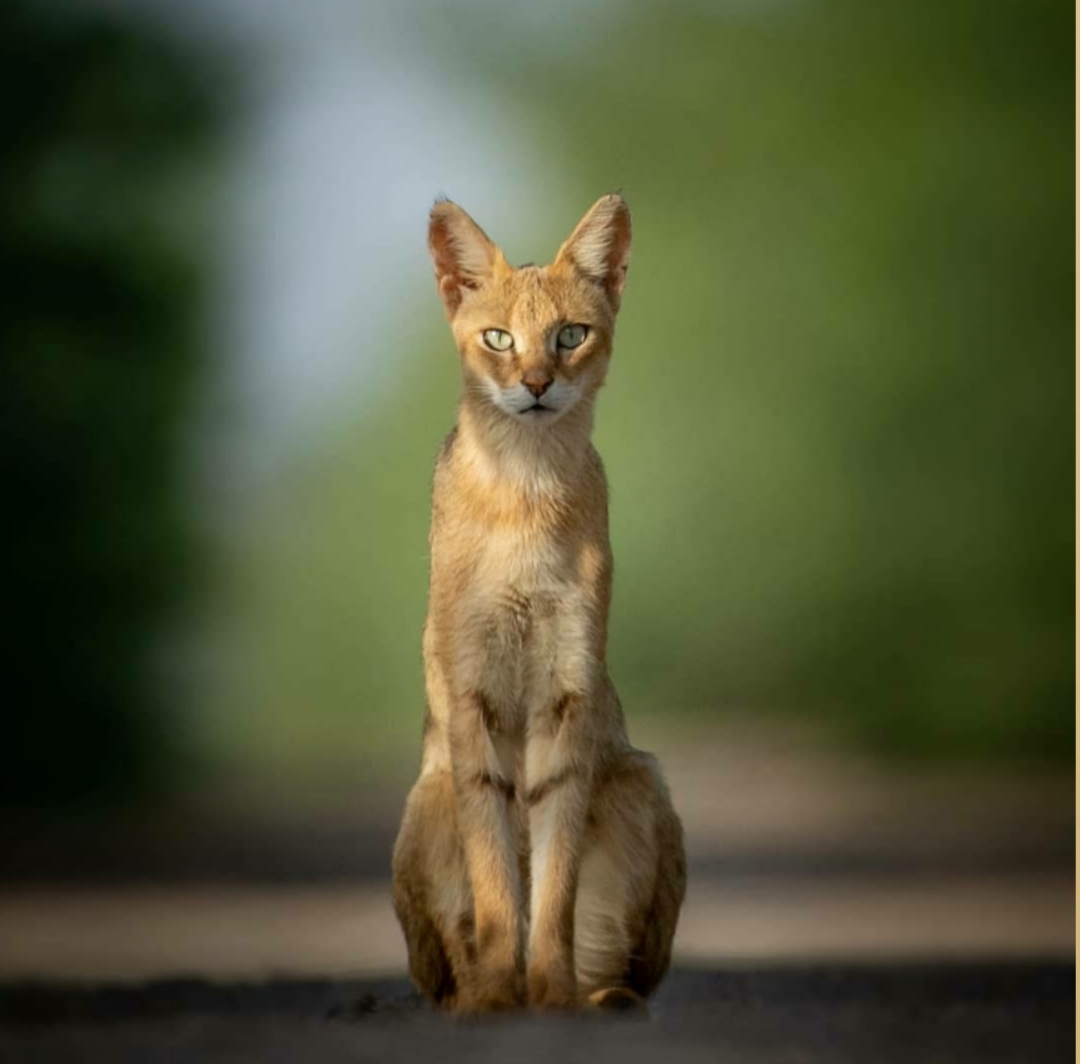
Jungle Cat’s Diet
The jungle cat is primarily diurnal i.e. found active during the day time as opposed to being nocturnal like the clouded leopard of India. Rodents make up for the jungle cat’s primary feast. However, they are also known to take to hares, reptiles, birds, young chital, wild pigs, etc as a part of their diet. since they are also known to be strong swimmers, fish make up for a portion of their diet as well.
Population of Jungle Cat
The IUCN red list has listed the jungle cat as “ least concern”. However, there has been a decreasing population trend with a continuing decline in the male jungle cat individual. The jungle cat is considered common and widespread in India and Sri Lanka, but also in Pakistan and Bangladesh. In Nepal, the population size is estimated to exceed 10,000 individuals. In southern China, South-east Asia (except north-eastern Cambodia) and South-west Asia, very few recent records exist and it is considered as rare.
Threats to the Chugai habitat in central Asia is the only place where the density estimations of the jungle cat are from which was estimated to be 40-150 individuals per 100 km sq. also, in the republic of Dagestan
(Russian Federation), the population of the jungle cat was estimated to be at 307 in 2013.
Spot Jungle Cat on Tigers of Central India Tour
Threats
The destruction of wetlands, the encroachment of the human population to attain agricultural/ residential land along with the reclamation of the vegetative cover has turned out to be the greatest threat faced by this cat. Other threats to this species include its killing by farmers due to their poultry taste of domestic nature. Further threats include
- Livestock farming and ranching
- Trapping and hunting of terrestrial animals
- Forestry effluents and agriculture
Some of the conservation actions needed includes
- Site/area protection
- Resource & habitat protection
- Habitat & natural process restoration
- Training
- Legislation
- Compliance and enforcement
- Linked enterprises & livelihood alternatives
Tour where you can find Jungle Cat: Big Cats Safari Tour
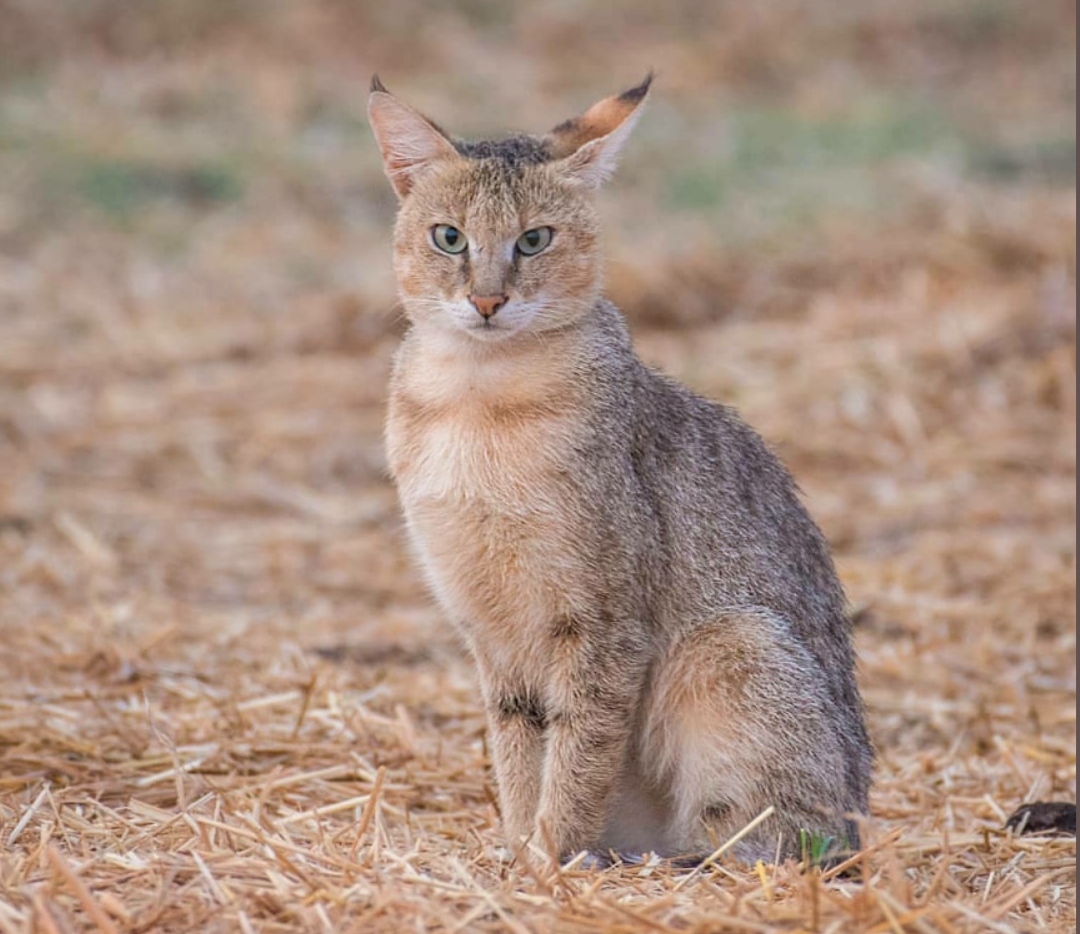
Interesting facts about Jungle Cats
- The jungle cat takes pleasure in sunbathing during wintertime and diving in the water to catch fish.
- Jungle Cats mostly prefer to stay near wetlands and wet habitat to get easy food.
- They can have 2 litters in a year.
- Usually, the jungle cat hunts early morning or late afternoon as they are diurnal creatures.
- Jungle cats can jump high in the air to catch birds.
- Since cats were considered sacred in Egyptian times, it was a common practice to mummify cats. The jungle cat was no exception, they have been mummified historically and buried in tombs in ancient Egypt.

